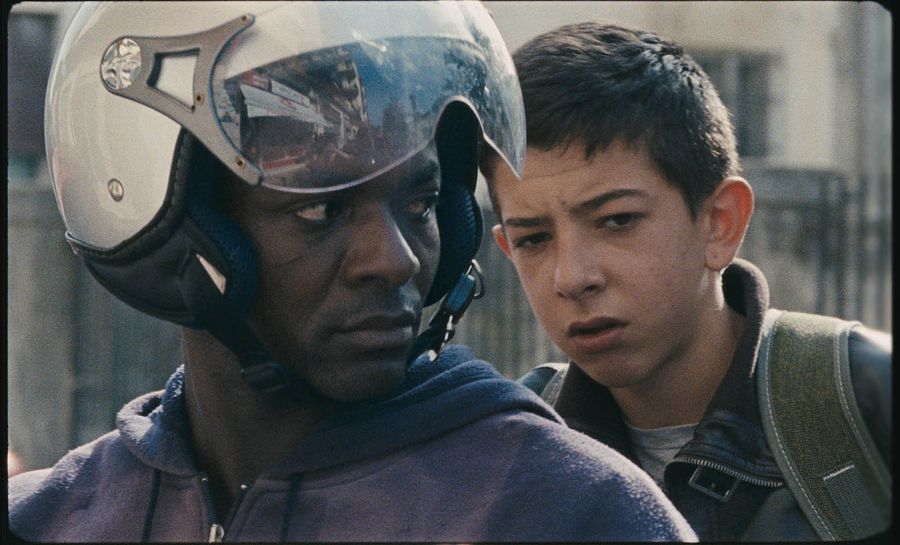Reviewed by Lee Hill
Against a timeless backdrop of mountain and foothills, a simply dressed yet elegant looking young man with a mustache tends to a horse and his encampment. This image will be a rare moment of calm and reflection before the chaotic narrative that follows. Where the opening shot of The Ciambra suggests timeless, romantic tradition, the remainder of the film will immerse us in a deracinated sub-culture surviving through petty crime and graft.
The Amato family, a proud, but unruly group of Romany are at the heart of that sub-culture and live in a slum – the Ciambra – in Calabria, Italy. In Jonas Carpignano’s remarkable mix of documentary and drama., the director not only draws on the real-life experiences of the Amato family, but has cast the family to essentially recreate much of their life on screen. Much of their desperate existence is seen through the eyes of fourteen-year-old Pio, a boy barely in his teens, but pushed into the ecosystem of small time cons that keeps his family clothed, housed and fed. He helps his older Brother, Cosimo, as a look out when the precarious trade in stolen goods is interrupted by occasional police raids. He rigs electricity, so his family can sustain itself despite growing debts. He hopes these tentative forays into the grown-up world of his brothers will impress neighborhood girls, also jaded and innocent, at the gaudy disco they frequent.
Despite his street smarts, Pio needs his sister to read a simple text and he is terrified of the commuter trains that race by the town. His mother and father exert some control and discipline, but they are overwhelmed by their poverty, ailing health (they seem barely younger than the grandfather) and their contradictory efforts to impose love and discipline on their sprawling family while maintaining an uneasy alliance with the local mafia, who drive the flash cars the Romany can only dream of. Adding to the poignancy of this portrait of family dysfunction is the presence of the grandfather, the once proud horseman glimpsed in the prologue, now a world-weary relic of an order uprooted by technology.
When Cosimo ends up in jail, Pio increasingly looks to Ayiva (Koudos Seihon), an immigrant from Burkina Faso, who fences some of the loot stolen by the Amatos, but who is keen to live a more stable life and longs to be reunited with his wife and child back home. Riding his scooter through the street of Calabria like a knight from a less ignoble age, Ayiva tries to keep Pio from getting into more trouble than he can handle.
The Ciambra follows in the tradition from the such neo-realist landmarks as Los Olivados, Pixote and City of God, but never feels derivative. With the rare access to the Amatos, and the intimacy of hand-held camera, Carpignano and his cinematographer, Tim Curtin, bring us into the centre of the lives of individuals for whom are empathy would be vastly challenged outside the comfort of a cinema.
This is the second feature by Carpignano, whose first feature, Mediterranea (2015), which also starred Koudos Seihon, and dealt with a group of African refugees making a perilous journey to Italy and a tenuous prospect of a better life. With Martin Scorsese as one of the executive producers and a high profile launch at last year’s Cannes Directors Fortnight, The Ciambra confirms Carpignano not only as a new force in European film, but as an innovator in blending drama and documentary to sublime effect.
Director: Jonas Carpignano
Writer: Jonas Carpignano
Stars: Pio Amato, Koudous Seihon, Damiano Amato
